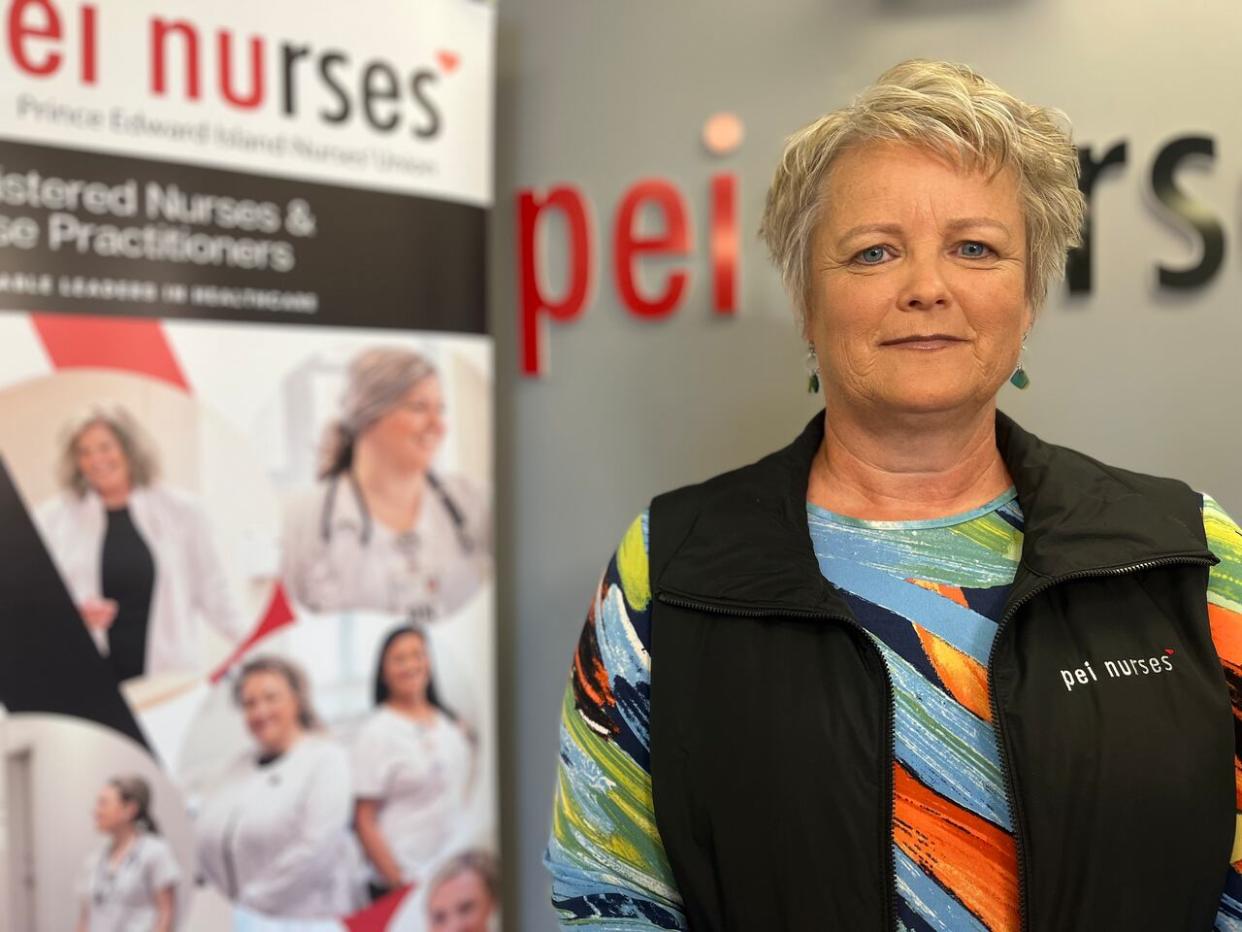Government's positive comments on health-care system 'demoralizing,' says nurses' union

The P.E.I. Nurses' Union joined doctors associated with Prince County Hospital in Summerside in declaring an emergency at the hospital in an open letter published on Saturday.
"We're all identifying the same concerns and we want to make sure the public were also aware," said union president Barbara Brookins.
On Thursday, Health P.E.I. announced that PCH would begin accepting fewer critical-care patients, due to a lack of staff in the progressive-care unit, starting in late January.
That same day the East Prince Medical Staff Association declared an emergency at the hospital in an open letter signed by 42 doctors.
But the doctors' concern predated the announcement. The letter's contents were endorsed by the association a week earlier, and it contained concerns about decreased critical care capacity going back more than a year.
That decreased capacity included the replacing of the intensive-care unit with a progressive-care unit last spring, due to a shortage of internal medicine specialists. Patients who require intensive care are currently being transferred to Charlottetown's Queen Elizabeth Hospital.
That does not appear to have been enough. Early last week Health P.E.I. said it was considering either cutting services or temporarily shutting down the progressive-care unit to deal with an ongoing staffing shortage.

Health P.E.I. has fewer nurses even as the population of the province grows. (CBC)
That wasn't the only bad news last week about P.E.I.'s health care system. A Statistics Canada report found P.E.I. ranks last among the provinces for access to a regular health-care provider.
"It's frustrating when we hear government publicly state that things are looking better," Brookins told CBC News.
"When the people on the front lines, the nurses on the front lines, are hearing this, it's really demoralizing."
Unclear who is making decisions
The union letter called for more consultation with frontline workers about changes to the health-care system, and also more clarity about who is running it.
"There seems to be too many people trying to make decisions, but they're not the right people," said Brookins.
"If [the government doesn't ] feel that the Health P.E.I. health authority is doing the right job or making the right decisions then they need to take ownership of that, but if they have provided the authority for Health P.E.I. to provide services then let them do it."
Brookins noted that while the population of the province has been growing, the number of nurses is falling.
Since 2020 the population has grown nine per cent. Health P.E.I. annual reports show 19 per cent fewer nurses.
There has been too much focus on recruitment, said Brookins, and not enough on retention.
In a response to the doctors' letter on Friday, Health P.E.I. said it is committed to securing more staff for PCH, and both recruitment and retention are vital to that process.

